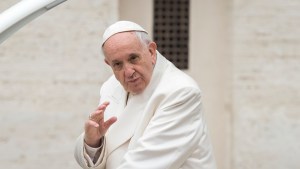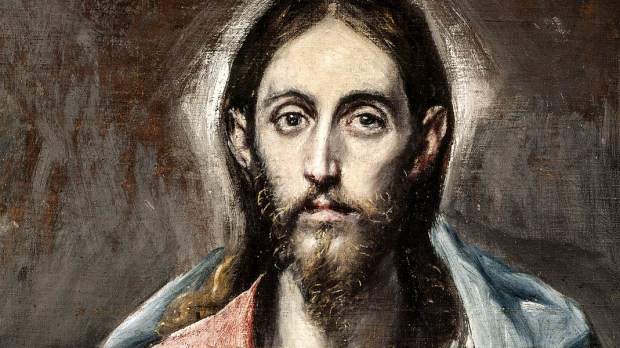This Sunday we celebrate the Passover – not the one where the Jews escaped the plagues of Egypt, but the one where we escape a world destined for destruction.
It is the 33rd Sunday (Year B), the dramatic end of the liturgical year.
If Jesus’ words in the Gospel came from almost anyone else, we would consider them unhinged.
He speaks about a tribulation after which “the sun will be darkened, and the moon will not give its light, and the stars will be falling from the sky, and the powers in the heavens will be shaken.”
But then “the Son of Man” will come “in the clouds with great power and glory.” The angels will be sent out to gather his “elect.”
“Heaven and earth will pass away,” he insists, and tell us to expect it imminently, though “that day or hour, no one knows.”
Daniel foresaw the whole thing — but he also saw that we would have an escape hatch.
The First Reading describes the same event as the Gospel, and calls it “unsurpassed in distress.”
Whether we are alive or dead will not matter. Daniel describes two fates possible for each soul: “Many of those who sleep in the dust of the earth shall awake; some shall live forever, others shall be an everlasting horror and disgrace.”
But like Moses in Egypt, “At that time there shall arise Michael, the great prince, guardian of your people.”
Like Moses, the archangel who is Satan’s nemesis will get us out and safe.
“At that time your people shall escape, everyone who is found written in the book.”
The Jews were promised a land of their own. So are we. “The wise shall shine brightly like the splendor of the firmament, and those who lead the many to justice shall be like the stars forever.”

Read more:
What are the Four Last Things?
If these words don’t scare us, they should. We already know that their basic premise is true.
We don’t need metaphoric language and dire signs to know the earth is fragile. Everything we see is destined to die and decay. The world as we know it will certainly end.
The consequences of that are enormous: It means that God’s power really is the foundation of all things. It means that our relationship to God really is the one true thing in our life, ultimately. It means that all of the things we prefer to God fall short.
Says Jesus: “Heaven and earth will pass away, but my words will not pass away.”
If we love Christ above all things then we need not fear that everything we know and love will ever be torn from us. Quite the contrary: The things that keep us from the one thing that matters will finally melt away.
We even have a Passover meal to mark and prepare us.
In the original Passover, the Jewish people had to sacrifice a lamb and mark their houses with its blood for the angel of death to pass by.
The Second Reading tells us how to join the one sacrifice of the Lamb of God: in the Mass, which is better than what Moses had.
We don’t have a priest who has to offer “frequently those same sacrifices that can never take away sins.” Jesus Christ “offered one sacrifice for sins, and took his seat forever at the right hand of God.”
“By one offering,” says the letter, “he has made perfect forever those who are being consecrated.”
The Eucharist is the source and summit of our whole Christian life. Everything in our faith leads to it or from it — we get baptized so we can receive the Eucharist. We live the commandments of God so that we can receive the Eucharist, and we receive the Eucharist so we can live the commandments. When we fail, we go to confession so that we can be forgiven our sin to eat this meal.
And what is the purpose of the Eucharist? To prepare us for eternal life.

Read more:
Don’t leave Mass with a forked tongue, says pope
So, as the Liturgical Year ends, get ready.
There are 33 years in Jesus’ life, and 33 weeks in Ordinary Time in the Church. Then comes the feast of “Our Lord Jesus Christ King of the Universe,” and then the cycle starts over with Advent.
No one knows the day or hour the end of the world will come. But the Church wants to expect it always.
“Be vigilant at all times and pray that you have the strength to stand before the Son of Man,” says Sunday’s uncharacteristically dire Gospel acclamation.
The end of the world will be terrible — unless we have put Jesus first in our lives.

Read more:
All the times Jesus warned of Hell

Read more:
Do recent catastrophes signal the end of the world is near?

